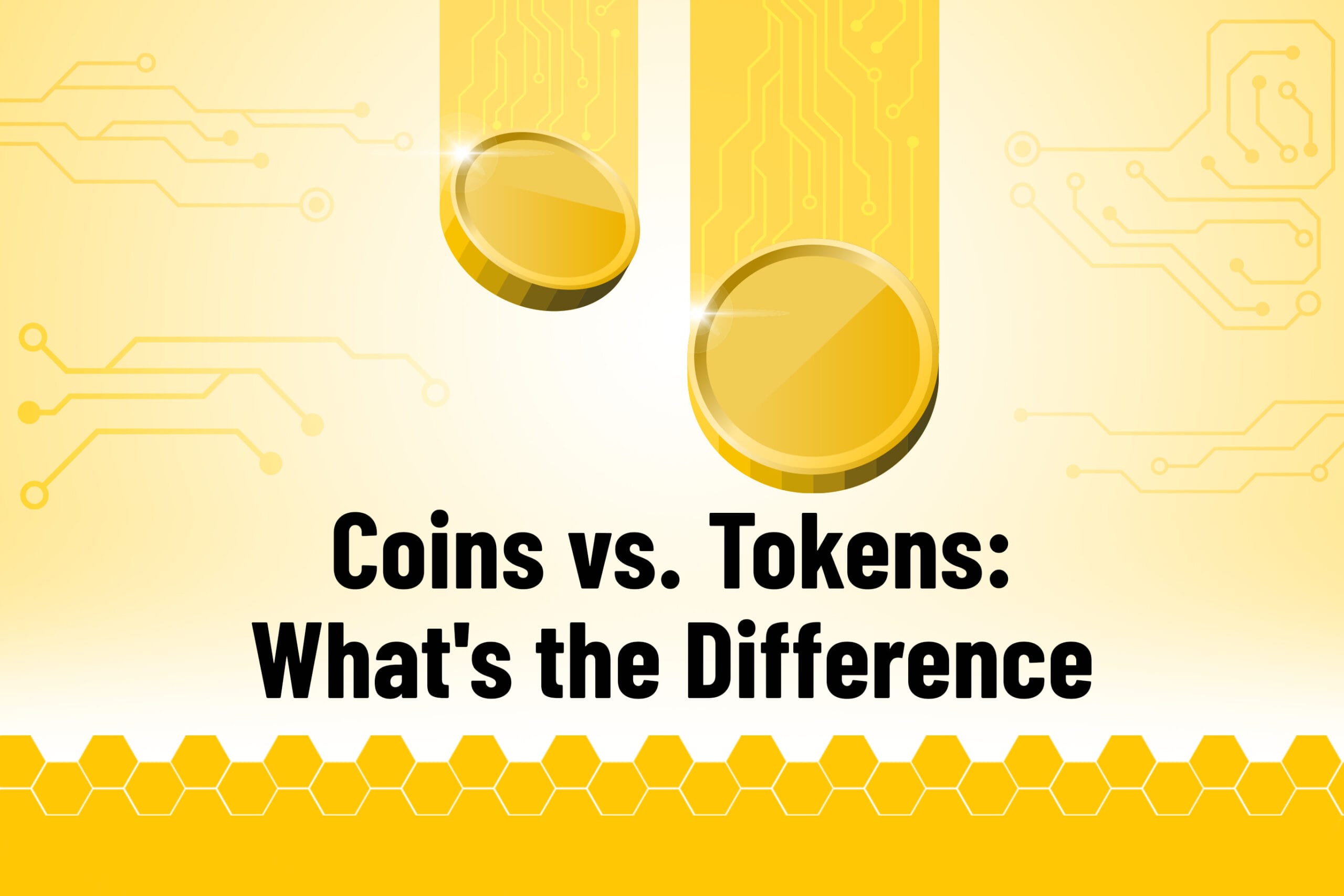
If you’ve spent any time in crypto, there’s a good chance you’ve confused coins with tokens. It’s understandable that this might be the case, as the two are often used interchangeably. The truth is tokens and coins are similar on a basic level. Each can be used as a form of payment, and both have value. Plus, users can exchange tokens for coins and coins for tokens.
But what’s the difference between the two? For starters, there are certain tasks that tokens can perform that coins cannot. Along those same lines, there are some platforms that accept coins but won’t take tokens.
Of course, there are other distinctions between the two. Let’s take a closer look at the differences between tokens and coins.
It should come as no surprise that Bitcoin has set the bar for what a coin is. However, there are clear characteristics that make a coin a coin. Interestingly, they’re similar to what you might find with real-world currencies. Here are the defining characteristics of blockchain coins:
When you pay someone using Bitcoin, the transaction takes place on the bitcoin blockchain. This is one of the key behaviors of a coin. If someone pays you in Bitcoin, again, the transaction resides on the Bitcoin blockchain. Every time a person sends or receives a specific cryptocurrency if it’s a coin, it takes place on a blockchain that is accessible to anyone on that network.
Bitcoin was developed by Satoshi Nakamoto (whoever they may be) with the intent of replacing traditional money. The idea was to provide a transparent yet anonymous way to perform digital transactions.
Now, over a decade later, you can use Bitcoin to pay for goods and services around the world. There are retailers from a variety of industries and markets that will gladly accept Bitcoin as a form of payment.
There are many ways to get your hands on some Bitcoin, but two of the most popular methods are to either buy it - which you can do through a Bitcoin Depot BTM - or mine it. Bitcoin is mined by using Proof of Work, which is a system used to create consensus on a block within the blockchain. Unfortunately, it’s become increasingly difficult to mine Bitcoin, which means most people are content buying it.
While coins have their own blockchain, tokens do not. Instead, they reside on other blockchains, using smart contracts to manage payments or trades between parties. When someone spends a token, it moves from one location to another.
Think of it in the terms of a baseball card. The card represents a token. When you trade the baseball card or sell it, it changes ownership as you give it to the person with whom you’re trading or selling.
By comparison, coins don’t move. They simply show how balances change. When you send money to someone, the bank simply notes how the numbers on your account changed and keeps the fees for themselves. This is similar to the way Bitcoin behaves. You add or subtract from the total value, and the balance in your wallet reflects that.
A second key difference between coins and tokens is what each represents. Cryptocurrencies are digital representations of money. They are simply numbers on a digital ledger. On the other hand, tokens can represent deeds, tokens, or anything else of value.
While you can purchase tokens using coins, it’s important to remember that there are some tokens out there that are more valuable than the coins you’re using to buy them. Think about it from this perspective: if you buy a share of a company using Bitcoin, it’s possible that the share of that company could increase in value more than Bitcoin increases in value. That doesn’t mean it’s going to happen that way, but the potential exists.
Stripped down to the basics, a token shows ownership of something you own, whereas a coin gives you the ability to own something. Of course, tokens existed long before cryptocurrency was even a thought. Technically, tokens don’t have much to do with cryptocurrency other than the way they’re used.
As a matter of fact, there’s a good chance you’ve used a token at some point in your life. If you’ve sold a vehicle, you likely signed the title of the vehicle to the new owner. That title is a token of ownership showing who the vehicle belongs to. Off course, you can’t take that same title into Best Buy and purchase a computer with it. You need currency to do that.
As you can see, the difference between coins and tokens isn’t huge. However, if that difference is overlooked, it can cause challenges and difficulties for those in the industry. One thing we know for sure is that Bitcoin is a coin.
It’s one of the most popular coins in the crypto world, and it’s easy to add some to your wallet anytime you want. One quick and easy way to do so is to use a Bitcoin Depot BTM. You can use our BTM locator to find a machine near you and buy Bitcoin.